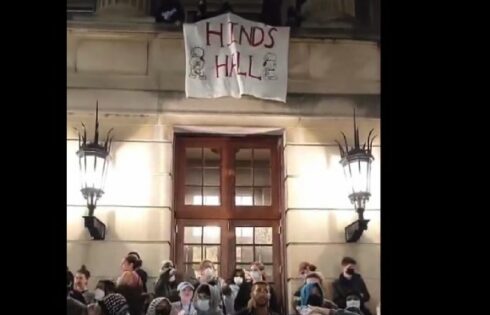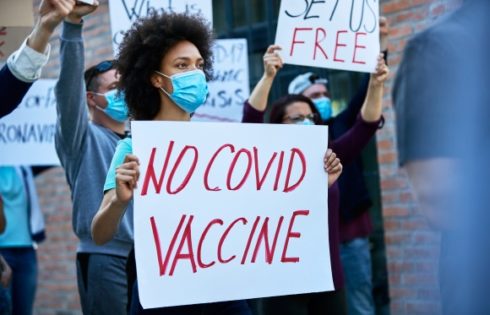Better think twice before you dress up tonight for Halloween as a belly dancer, nerd, gangster or other caricature – underneath the costume you might be a shallow, ignorant college student perpetuating a stereotype.
That’s essentially the message behind an Ohio University student group’s annual Halloween poster campaign called “We’re a Culture, Not a Costume.” For the second consecutive year, the group, which calls itself Students Teaching About Racism in Society, or STARS, has advertised its message to peers locally and nationally to inform them that a little fun with their holiday get-up is probably misguided and possibly racist.
One of the student leader’s only regrets, she noted in an email to The College Fix, is that the group is too small to really tackle all of the stereotypes perpetuated each year. Chairwoman Laura Hyde said she would like to expand the group’s poster campaign in the future to include more costumes than this year’s eleven.
STARS “focuses on race, but we do strive to be inclusive and discuss other forms of oppression as well,” she said, adding that’s why the group included an “Appalachian stereotype” this year. “We believe that this is not addressing a group that is marginalized by their race necessarily, but by class and dialect.”
The 10 other costumes tackled are perhaps best described as: belly dancer, geisha, thug, ancient Egyptian, redneck and the proverbial Asian student, to name a few. Next to someone dressed in such garb, the poster offers an image of a person looking sad and put upon. The posters tout slogans such as “This is not who I am, and this is not okay,” or “You wear the costume for one night, I wear the stigma for life.”
It’s unclear whether STARS would support Ohio University enacting sanctions against students who wear the costumes deemed offensive. Robert Shibley, senior vice president of the Foundation for Individual Rights in Education, said that would not be allowed, anyway.
“Universities and student groups are free to encourage people not to wear costumes that other people may find offensive,” he told The College Fix. “They are also free to speak out against costumes they find offensive. However, a public university like Ohio University is not free to legally mandate inoffensiveness, on Halloween or at any other time.”
And while reaction to the campaign is a mixed bag, the movement is growing. The campaign was picked up at Florida State University this year, and many students supported it, but not everyone did, according to a FSU news article.
International affairs major Gavin Benner, a senior, said he thinks Halloween costumes shouldn’t be taken so seriously and that STARS is being a little too sensitive, the FSU article states.
“These [costumes] are all portrayals which take place in film and television all the time,” Benner said. “There will always be people who are being irresponsible and intentionally offensive, but that is the vast minority. When you take into account that everyone has a freedom to expression, then I believe it isn’t anyone’s place to suppress that.”
But that attitude, and not just a Halloween costume, may get one labeled as a racist, as well.
Consider a recent article on TheRoot.com:
“There’s this sense of ‘I don’t know why people have to make it a big deal,’ ” says Leslie Picca, associate professor of sociology at the University of Dayton in Ohio, whose book “Two Faced Racism: Whites in the Backstage and Frontstage” examines inconsistencies in the presentation of white racial attitudes, using data gathered from the journals of students recorded across the U.S. Despite living in a heavily racialized society with racial gaps in wealth, health and education, she says, many (especially young people bred to believe they exist in a ‘colorblind’ world) have trouble accepting the serious implications of what they choose to wear for a once-a-year holiday, even when those implications are brought to their attention.”
STARS’ campaign is a public-service announcement aimed at creating a more tolerable student body, and it remains to be seen if it’s a friendly reminder or a slippery slope. Hyde, in her email, noted that “it is certainly a great goal to address ALL problematic Halloween costumes.”
IMAGE: Gaudencio Garcinuño/Flickr
Click here to Like The College Fix on Facebook.





Please join the conversation about our stories on Facebook, Twitter, Instagram, Reddit, MeWe, Rumble, Gab, Minds and Gettr.